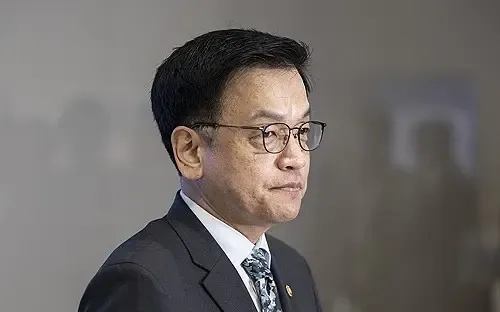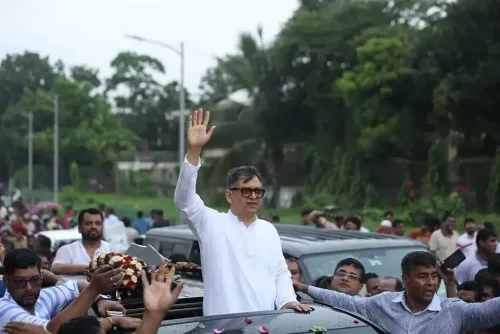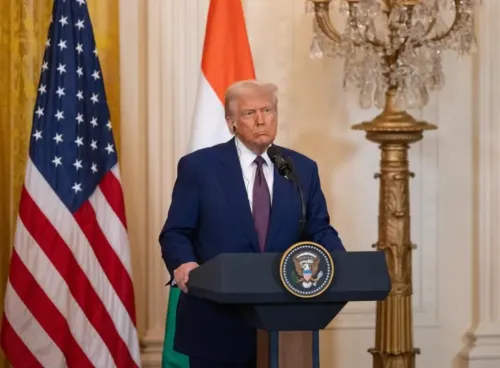South Korean Finance Minister Commits to Strengthening US Alliance

Synopsis
Key Takeaways
- Choi Sang-mok emphasizes fortifying the South Korea-US alliance.
- Upcoming trade talks address US tariffs impacting South Korea.
- First high-level discussions since Trump took office.
- Trade negotiations are crucial for South Korea's export-driven economy.
- Meeting includes key US economic officials.
Seoul, April 22 (NationPress) South Korean Finance Minister Choi Sang-mok stated on Tuesday that his forthcoming trade discussions with the Donald Trump administration are expected to facilitate renewed conversations aimed at fortifying the South Korea-US alliance.
Choi, who also serves as the deputy prime minister for economic matters, made this declaration as he departed for the United States to engage in talks over various topics, including the new tariff policies from the US that impose a 25 percent country-specific import duty on South Korea, as reported by Yonhap news agency.
"I will return after unlocking the pathway for discussions on resolidifying the alliance between South Korea and the United States," Choi informed reporters at Incheon International Airport, located just west of Seoul, prior to his journey to Washington.
Choi is set to participate in a series of crucial economic meetings in the US capital, which include discussions regarding US tariffs, marking the first high-level trade talks between the two allies since Trump assumed office in January.
He will be joined by Industry Minister Ahn Duk-geun for what the government has referred to as "2+2 trade consultations."
The significant discussions, scheduled for Thursday (US time), will also feature US Treasury Secretary Scott Bessent and US Trade Representative Jamieson Greer.
Earlier, the ministry indicated that the agenda for the 2+2 trade consultations remains under coordination with the US side and is yet to be finalized.
South Korea is one of the first nations to engage in trade negotiations with Washington following the Trump administration's introduction of reciprocal tariffs on all major trading partners. The economy of Seoul, which heavily relies on exports, was impacted by a 25 percent tariff, temporarily reduced to 10 percent for a 90-day period.









